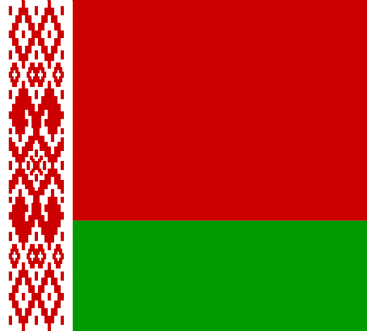Mr. Speaker, today marks the expiration of the term of office of authoritarian Belarusian President Alyaksandr Lukashenka under the 1994 Belarusian Constitution. To nobody’s surprise, Mr. Lukashenka is not abandoning his office, having extended his term of office until 2001 using the vehicle of an illegitimate 1996 constitutional referendum.
Since Lukashenka was elected five years ago, Belarus has witnessed nothing but backsliding in the realm of human rights and democracy and a deterioration of the economic situation. The Belarusian Government continues to violate its commitments under the Organization for Security and Cooperation in Europe (OSCE) relating to human rights, democracy and the rule of law. At the root of these violations lies the excessive power usurped by President Lukashenka since his election in 1994, especially following the illegitimate 1996 constitutional referendum, when he disbanded the Supreme Soviet and created a new legislature subordinate to his rule.
Freedoms of expression, association and assembly remain curtailed. The government hampers freedom of the media by tightly controlling the use of national TV and radio. Administrative and economic measures are used to cripple the independent media and NGOs. Political opposition has been targeted for repression, including imprisonment, detention, fines and harassment. The independence of the judiciary has been further eroded, and the President alone controls judicial appointments. Legislative power is decidedly concentrated in the executive branch of government.
The Helsinki Commission, which I Chair, has extensively monitored and reported on the sad situation in Belarus, and has attempted to encourage positive change in that country through direct contacts with Belarusian officials, as well as through the Organization for Security and Cooperation in Europe. The OSCE Parliamentary Assembly meeting in St. Petersburg earlier this month overwhelmingly supported a resolution encouraging democratic change in Belarus, including the conduct of free and fair elections next year.
As Chairman of the U.S. delegation to the OSCE PA, I urged my fellow parliamentarians to join me in calling for the release of ex-Prime Minister Mikhail Chygir and the guarantee of free access to the media by opposition groups. In addition, I joined 125 delegates representing 37 of the 54 participating States in signing a statement which offered more harsh criticism of the political situation in Belarus, condemned the use of violence against Supreme Soviet members and representatives of the democratic opposition, and protested their detention.
Within the last few days, there appears to be some glimmer of hope in the gloomy Belarusian predicament. According to a July 17 joint statement by the OSCE PA ad hoc Working Group on Belarus and the OSCE Advisory and Monitoring Group (AMG) in Belarus: “The Belarusian President states his commitment to the holding of free, fair and recognizable parliamentary elections in Belarus next year, as well as his support for a national dialogue on elections to be held between the government and the opposition.” I agree with the Working Group and AMG’s emphasis on the importance of “access to electronic media for all participants in the negotiations, and a political climate free of fear and politically motivated prosecution.” Mr. Speaker, while I welcome this statement, I remain guarded, given Mr. Lukashenka’s track record. I very much look forward to its implementation by the Belarusian Government, which could be a positive step in reducing Belarus’ isolation from the international community and the beginnings of a reversal in the human rights situation in that country.




